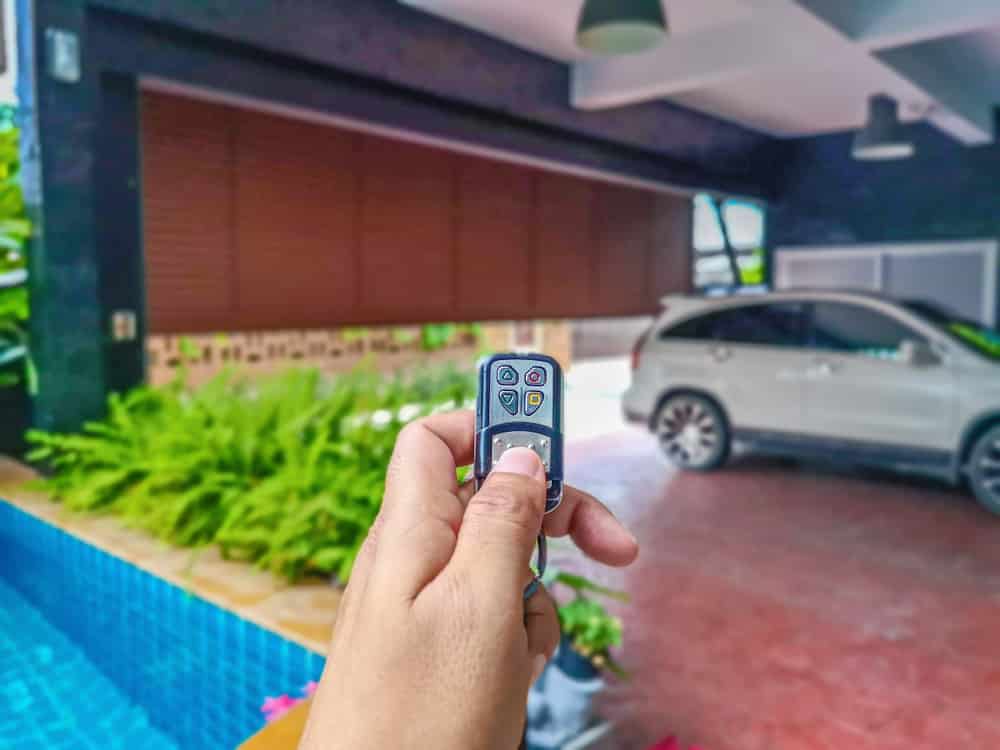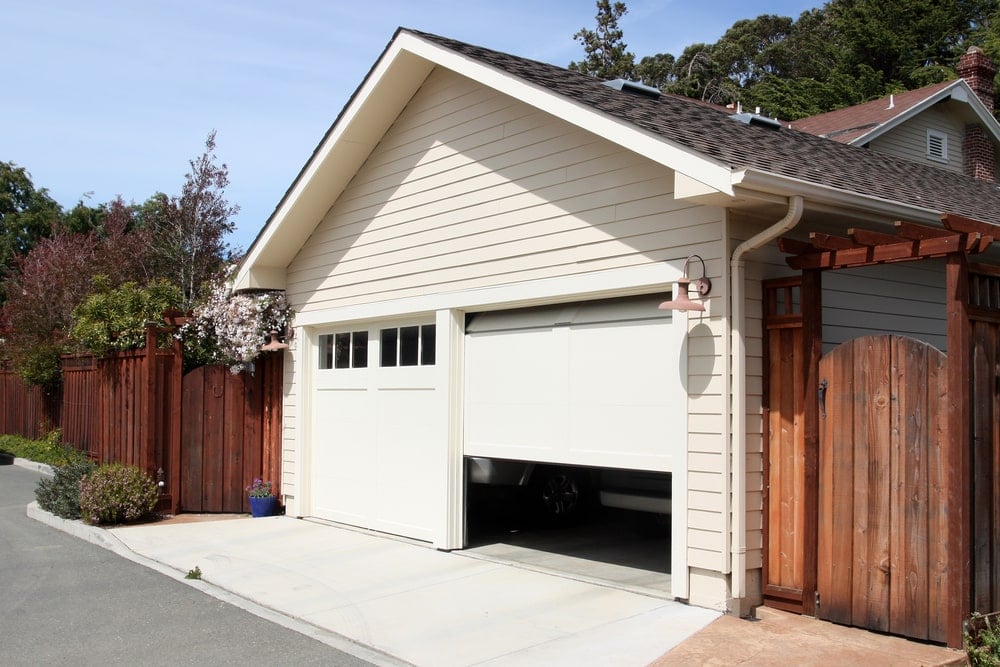
If your garage door is inefficient, your home will be too, especially if you have an attached garage. Nearby rooms may be uncomfortable. Energy bills, security, and the value of your home may also be negatively affected. Whether you update your current garage door or install a new one, there are various ways to improve energy efficiency.

How to Make Garage Door Energy Efficient
-
Consider Insulation Levels
Whether you install a new door or retrofit an existing one, you can determine the quality of insulation by looking at its:
- U-factor: A measure of how heat transfers, or moves through, a material. The higher the U-factor, the more heat that’s transferred through the door. Look for a low U-factor (around .35 or less) if you want your garage warm in winter and cooler during the summer.
- R-value: Describes the conductivity of a material from one surface to another; higher R-value materials are more resistant to conductive heat. The best R-value depends on the climate you live in. However, the most energy efficient garage doors have an R-value of at least 12.
-
Choose Materials Wisely
Garage door materials often aren’t that insulative on their own. For example, steel offers little insulation, but when combined with an internal layer of polyurethane, can be quite efficient. Thicker steel is more insulative than thinner higher-gauge steels. Aluminum is lightweight and not a good insulator while wood is preferred more for its look. Composite wood garage doors combined with a steel layer can be insulating. Therefore, consider multi-layered doors if energy efficiency is your priority.
-
Check for Air Leakage
No insulation will work if there are leaks in your garage door or the walls around it. Occasionally feel for drafts and check the quality of your hardware and weather-stripping. All components must be properly fitted, or you risk leakage and energy loss. Garage door maintenance is therefore essential for improving energy efficiency.
-
Weather Stripping and Weathertightness
Purchase higher quality PVC weather stripping. It will cost more but make your investment in an efficient garage door more worthwhile. All weather stripping between door sections should be intact. The insulation at the bottom and perimeter of the door should be as well. Thermal breaks should also be installed between sections and at the ends of the door.
-
Smart Garage Door Opener
If your garage door opener is sapping energy, the overall efficiency of your garage will decrease. Electronic garage door openers compound the problem because they continuously draw power in standby mode. A Lawrence Berkeley National Laboratory study found the average opener draws 4.48 watts of standby power a year. Installing low standby power models can mitigate this issue.
-
Check the Energy Efficiency of the Rest of Your Garage
Leaks and inadequate sealing will reduce efficiency no matter how well-insulated your garage door is. This includes windows built into walls and the garage door, which should be sealed and selected based on insulating properties. Energy-efficient roofing above a garage helps too, as it can prevent air leakage, keep in warm air, and improve air circulation.
Call Precision Door Service of Fresno
Precision Door Service installs, replaces, and repairs the most energy efficient garage doors on the market. If you feel the efficiency of your garage and home needs improvement, our experienced professionals know how to make a garage door energy efficient. Call 559-212-3305 today to schedule a same-day visit, receive a competitively priced quote, and benefit from high quality materials and service.












